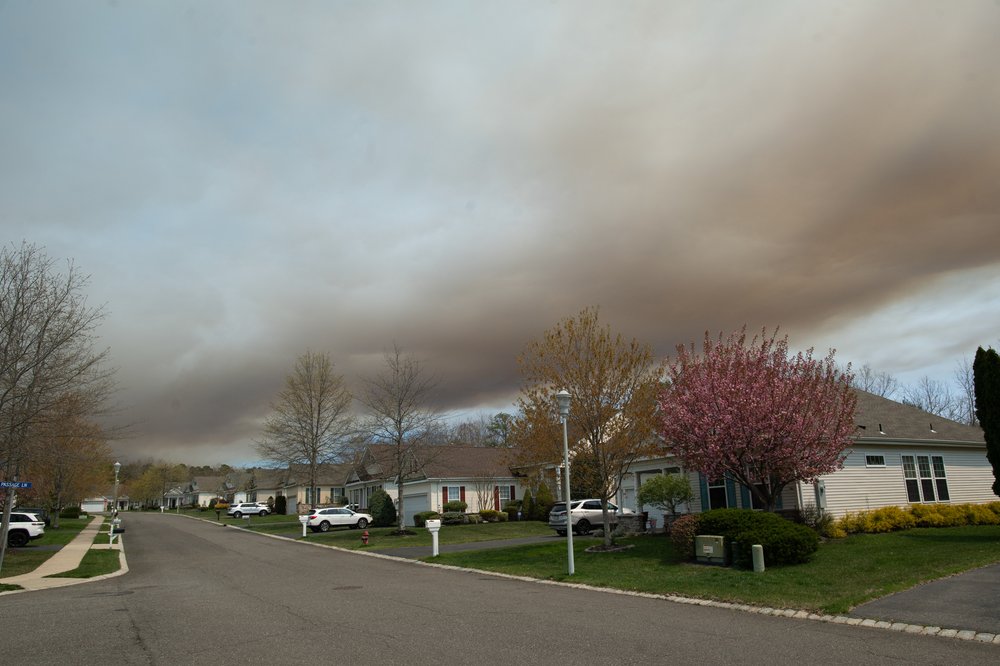Wildfire smoke from New Jersey may affect NYC air quality, officials say
April 23, 2025, 3:53 p.m.
A health advisory is in effect for Thursday, with smoke from a massive New Jersey wildfire projected to bring New York City’s air quality to unhealthy levels.

Smoke from a massive wildfire burning in southern New Jersey is expected to drift into New York City’s skies by Wednesday evening.
A health advisory is already in place for Thursday, with the city’s air quality index projected to reach unhealthy levels due to the incoming smoke.
.@NYSDEC Air Quality Health Advisory: Air Quality Index (AQI) forecast to reach 101-150 tomorrow, Thursday, April 24th. Unhealthy for sensitive groups & for those sensitive to air pollution. Info: https://t.co/qrjF4dYyPo. Multilingual & ASL Link: https://t.co/PefNUSKD4R.
— NYCEM - Notify NYC (@NotifyNYC) April 23, 2025
The city’s emergency management agency issued a warning Wednesday afternoon, saying it remains “uncertain” exactly when — and where — the wildfire smoke will reach the five boroughs.
The Jones Road Wildfire, which began Tuesday in Ocean County — about 85 miles from Manhattan — was only 35% contained as of 1 p.m., according to the latest update from the New Jersey Forest Fire Service.
The 12,000-acre blaze has already destroyed multiple buildings, vehicles, and at least one commercial property.
It’s among New Jersey's most severe wildfires in recent years, said Alex Staarmann, a meteorologist with the National Weather Service in Mount Holly, New Jersey.
“We are kind of in the peak of the wildfire season, especially in southern New Jersey,” he said. “Usually mid to especially late spring, when we start having much warmer days, the air usually gets much drier.”
Staarmann added that it’s not unusual for smoke from large wildfires to affect air quality in neighboring states. “It’s difficult to stop it once it gets going,” he said.
City officials said the smoke may reach parts of New York City on Wednesday between 8 and 10 p.m., with Staten Island and southern areas most likely to be affected. NYC Emergency Management is monitoring the situation and coordinating with state and federal agencies, officials said.
New Jersey officials have warned that this spring could be especially hazardous when it comes to wildfires, pointing to persistent drought conditions, a drier-than-usual winter and limited capacity to conduct prescribed burns. Fire activity has already sharply increased in the state this year.
This is a developing story and may be updated.
New Jersey is entering an especially risky wildfire season, officials say